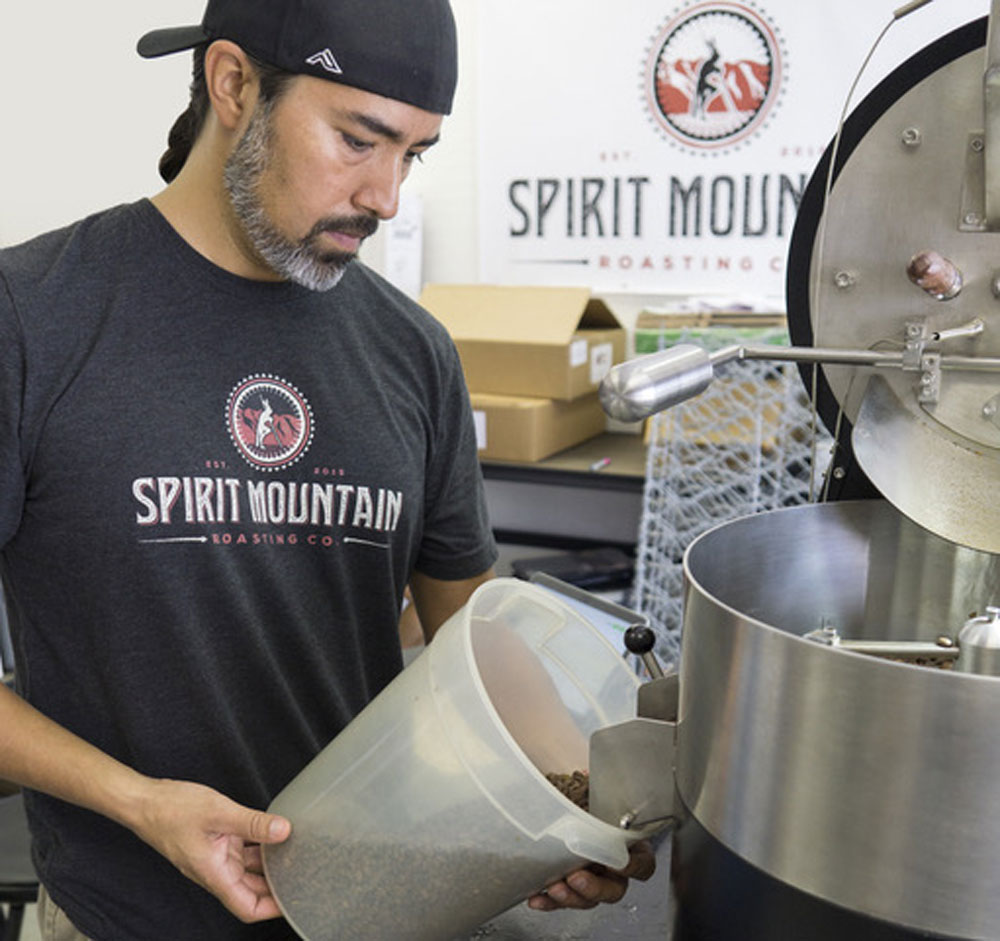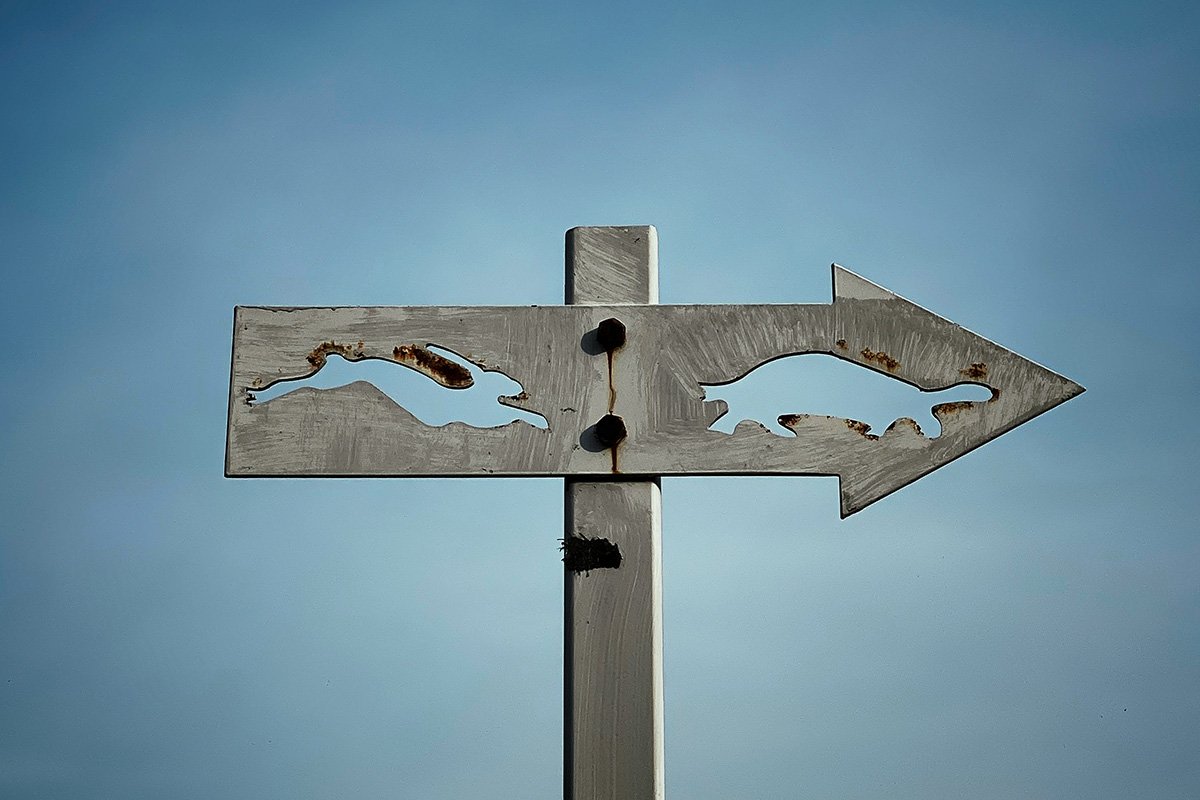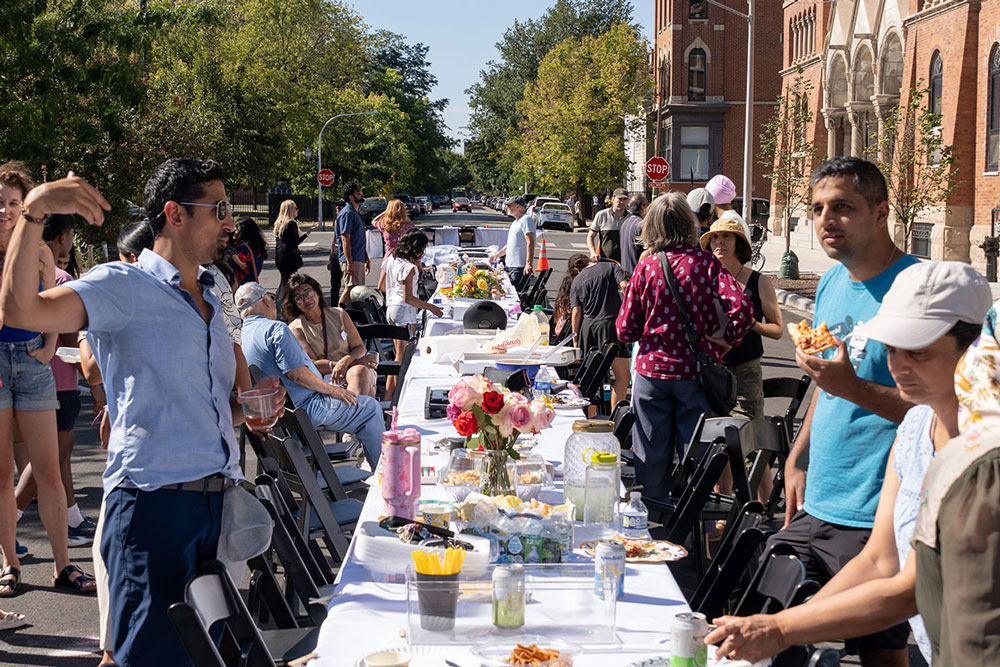
If the pandemic and the election have taught us anything, it is patience. Assume nothing; nothing is stable, and anything can change at any moment.
The one thing I do know for sure is that the pandemic and election season have shown us why systemic change is so necessary. Both President-elect Joe Biden and Vice President-elect Kamala Harris named systemic racism in their acceptance speeches as a top concern. The pandemic itself has revealed enormous cracks in our economic, social, and healthcare systems, exposing those most vulnerable to COVID-19: businesses, employees, essential workers, students, teachers, families. The list of impacts goes on.
What does all this mean for local business? We need to examine systems and how locally owned businesses and social enterprises participate in, contribute to, and evolve the system. As the pandemic traversed the US, small business owners were hit hard. Many closed their doors to keep their employees and loyal longtime customers safe for what they thought would be a few weeks. In reality, as the crisis wore on, business owners learned things would not come back to normal anytime soon.
Eight months later, the pre-pandemic days have not returned. The “new normal” is whatever we decide it is, because there is still uncertainty in knowing what even the near future looks like.
It wasn’t just a health crisis that affected local businesses. Ongoing racial tensions that boiled in the days following the murder of George Floyd in May had business owners thinking about racial justice and how to strengthen their stance on issues of equity. Some even took explicit political stands for the first time in their business lives, boarding up windows and spray-painting “Black Lives Matter” or “Racial Justice Now” to signal their support of their community. Many Black-owned businesses boosted their own promotions to stand up and say they were not going anywhere. They became safe havens, too, for their own community members. The whole system is shifting, and business owners and social entrepreneurs are at the heart of it.
Let’s think about the role locally owned businesses and social enterprises play in our communities. Many locally owned businesses have, for generations, been the core of our communities. They are owned by our friends, family, and neighbors. These businesses support our local economic tax bases and put money into local coffers for first responders, libraries, parks, infrastructure, and many of the services that nonprofits provide.
By national definitions and standards, small businesses on average pay less than corporate wages. The “typical” US small business owner is white and over the age of 50, with more than 50 employees. But I’m focusing here on locally owned independent businesses and social enterprises, which often pay a higher-than-average or living wage, choose to offer benefits to employees or some form of profit sharing or perks, and serve a need in their tightknit neighborhoods and communities. These are the small businesses—microbusinesses, often—in the category of less than 25 employees. Many have fewer than five employees, including the owners themselves, and many are owned by people of color. These business owners have for many years been uncategorized, underserved, and left unheard when it comes to services and support networks to help them in times of growth or crisis.
I lead a consulting firm that has had a laser focus on these businesses and growing the leadership of the owners to be heard and seen, helping to provide in-depth community connections to sustain their growth. What I have learned over the last decade from these businesses and social enterprises—Indigenous, Latinx, and Black-owned—has shaped how I view the entire ecosystem in which they exist and which supports them.
On average, these local businesses contribute far more to our local economies than do big box or chain stores. The numbers vary, but the data are clear. To give one example, a Salt Lake City study found that local retailers spend 52 cents on the dollar in their local community, compared to less than 14 cents for chain stores.
Social enterprises—and one could argue (as I often do) that many local businesses are in fact social enterprises—go a step further, providing much needed services or products that solve a community need. They use local services for their accounting needs, legal services, and often their supplies. This helps keep the money flowing.
I call these businesses “social enterprises” because they not only hire locally but take a higher risk in creating more sustainable businesses that incorporate people, environmental and climate issues, and profit. Often, their profits are slim because committing to serving and fixing social issues is an expensive endeavor. Sourcing local and high-quality goods or fair-trade items is expensive.
Like many nonprofits that serve their communities, locally owned businesses are hubs in their communities. Not only do they provide jobs, but they often are a place to gather to meet friends and family, and to support your community. A lot of consumers prefer to seek out locally owned businesses because these businesses align with their values and they trust their intentions.
The pandemic, however, has shown that empathy is a key driving force in our communities. No one wants to see these businesses go away. Indeed, as NPQ reported in September, a survey conducted by the Women’s Philanthropy Institute at the University of Indiana found that, in response to the pandemic, more households (48.3 percent) gave to local small businesses than to nonprofits (32 percent).
No one wants to see our main streets and neighborhoods devoid of storefronts and coffee shops to hang out in. Nor do they want to see these main streets taken over by big box or chain stores. We want to keep these places for more generations to come.
But how do we do that? It takes many hands to change a system. Rebuilding past a crisis will take a mix of courage and risk. It requires knowing your business well enough so you know what you can let go of. It’s also going to take a community of support that includes government agencies, policymakers, and technical assistance organizations.
As we move through this pandemic, my prediction is that small locally owned businesses, and the communities that create strong support systems around them, will survive and thrive if they take these courageous and creative risks. They will lead the way to recovery.
Now, let’s look at the state of local business, including the entrepreneurial networks and economic development programs that support them—or don’t support them.
Accessing Resources
Many business owners say they would access resources if they were available, but they don’t know where to go to find them. Banks can sometimes point them in the right direction. City economic development programs and small business development offices often list resources. But, if you aren’t sure what you need, you won’t know what to look for. Finding resources and then accessing those resources (literally filling out applications and forms—or signing up for workshops or classes) is an ongoing problem for business owners and social entrepreneurs.
While many nonprofits have suffered greatly from the economic shutdown, the situation of locally owned businesses is also dire. Many small businesses received Paycheck Protection Program (PPP) or US Small Business Administration (SBA) loans to cover payroll, overhead costs, and inventory. Some have accessed local grants or loans available through their city or county economic development centers. Almost all of them had to get creative to shore up their businesses and remain strong anchors in their cities and towns.
But if you ask any local small business owner about expansion or bridge loans to handle cash flow, and they will likely answer you with, “I wasn’t able to get one.” Too many businesses and social enterprises bootstrapped their way with their own savings or family cash. This is particularly true for those that are owned by people of color.
Sign up for our free newsletters
Subscribe to NPQ's newsletters to have our top stories delivered directly to your inbox.
By signing up, you agree to our privacy policy and terms of use, and to receive messages from NPQ and our partners.
Our banking system is a major piece of the system that needs immediate attention. When PPP loans were offered by the CARES Act, the race to apply was fierce and many small locally owned businesses were left out completely, as large chains and corporations were favored by the major banks. These large corporations and chains had accounting services and business managers at the ready to apply. By contrast, small business owners scrambled to get their paperwork together, many of them looking at loan applications for the first time in their business history.
What we need is a major shift of the entire financial system.
One way to continue to support those receiving these relief funds is to stay in contact with them, creating wrap-around services. These services need to address the business owner directly and “meet business owners where they are.” How do technical assistance programs do that? Workshops are useful but learning communities are even better, creating communities of support.
Creating Networks of Support
One method to support local small business owners is cultivating communities of practice. These groups provide people with a space to talk with others facing similar challenges. It’s a chance to network, bond, and find like-minded people to confide in when challenges or successes come up. These business leaders can then take on bold ideas and implement them, with others cheering them on, supporting their hard work.
A community of practice provides a dedicated time and space to get away from work, to go deep, and be among a community of peers. Often members in these groups build long-term relationships and collaborations. Local governments should invest those funds in these technical assistance and network connector groups.
Toward a Pandemic Pivot: A Few Key Steps
So far, I have addressed what needs to be done systemically, but business owners also need to take action on their own. It is possible for business leaders, like innovative nonprofit leaders, to find opportunity amid the crisis. Here are some key steps for doing so. And, of course, many of these steps apply equally whether you’re running a small business or leading a small nonprofit.
Assess what works
Where did the majority of the business income come from before? Can it be expanded? Even catering companies with canceled events were able to pivot to meal kits and premade dinner menus. With so many people staying home and tired of cooking, or finding themselves without the time to cook because online learning in families took priority, parents and families turned to premade meals to keep their families healthy.
In communities where unemployment skyrocketed and food pantry lines became miles long, caterers and restaurants became places to find affordable meals or kits or even free meals. Some communities stepped up to support these services by purchasing extra meals or donating money to cover the costs for those who could not afford the full price. Again, empathy became a driving force for people wanting to support their fellow community members. Restaurants that never considered themselves to be social enterprises found themselves providing a valuable social service in offering healthy affordable or free meals.
Many of the businesses I work with were formed out of the wreckage of the Great Recession. This was especially true for food-based businesses, and even truer for women who wanted to provide for themselves and their families.
We are seeing that again. With businesses closing daily, more employees have decided to go out on their own. Now is the time to take the leap into entrepreneurship because there are market gaps out there to be filled.
Get creative
What does it look like to get creative in this new normal for locally owned independent businesses? It’s about looking at your business’s assets, digging deep within yourself as a leader in your community, and getting creative with how you proceed.
Delivery businesses once focused on dry goods have turned to food delivery to get food and supplies where people need them. Independent bookstores have become community events organizers, doing online readings and special events to keep people entertained and keep income rolling in. Those who dig deep into their creative side and implement some changes will see the reward.
Local businesses can become stronger community hubs. Across the country we’ve seen pizza joints and small cafes selling groceries in addition to their own takeout meals, even transforming into places to get healthcare info and safe supplies. They have become a community space, a spotlight on hope for a lot of people.
When retail stores reopened, we saw people “shopping local” to show their support, proudly displaying their new t-shirts and chatting with neighbors they hadn’t run into in months at “shop and stroll safely” kind of events. In Santa Fe, New Mexico, an artists’ haven of recycled goods opened in a warehouse because all of their “recycled arts” events were canceled.
Emotional intelligence in leadership
Let go of what you thought you knew. That business plan you had for five years down the road might actually be the thing you should implement right now to save your business. It might be the way to reach new customers. It might gain interest by new clients.
With creativity, businesses can help rebuild their local economies. Yuma, Arizona’s Native American-owned (Quechan) Spirit Mountain Roasting Company quickly pivoted from wholesale accounts in mostly Tribal-owned casinos to boosting retail sales direct to consumers of its fair-trade, ethically sourced coffee products. They began partnering with other Native American businesses for gift packages and for shelves in other Native-owned cafes all over the country. Their social media campaigns featured other Native-owned businesses, lifting up others’ products while promoting their own. In many posts, they stood with Black-owned business owners in the fight for racial justice.
With only three employees and a deep commitment to employing and training Quechan tribal members in sales and roasting production, it is building a truly local, community impact business from the ground up. Instead of laying off employees when wholesale accounts slowed due to casino closures in the pandemic, they asked their employees to help in the creativity of the crisis action plan to strengthen retail sales as its core business. Spirit Mountain is barely five years old, but it has been nimble and responsive, both in its production and online promotions, and in serving its employees.
Even those who have been in business for a long time can pivot to create a new culture of social justice, inclusivity, and racial justice. Standing up for true equal rights in the business community means standing up for human rights and building a business from the inside out that reflects and serves the communities as diverse as our country.
Speak up, stand up
Locally owned businesses and social enterprises can have a powerful voice in the economic system, but it requires reaching out to local government leaders at every level to express your needs and ask for help. These leaders need to hear what resources you have not been able to access or have been denied access to. The more they understand a business’s needs, the more they can help. While it can seem daunting to reach out to government leaders, calling a city council member can often be a big first step in helping to fix the system. Remember, the taxes local businesses pay are the backbone of our cities and towns. They rely on your success to succeed. They need you.
Businesses should take a stand and adapt their business plans and models to serve their communities. Acknowledging that your local business is part of an entire system and can contribute to the system in an equitable and healthy way is the first step toward building a strong and lasting impact.










